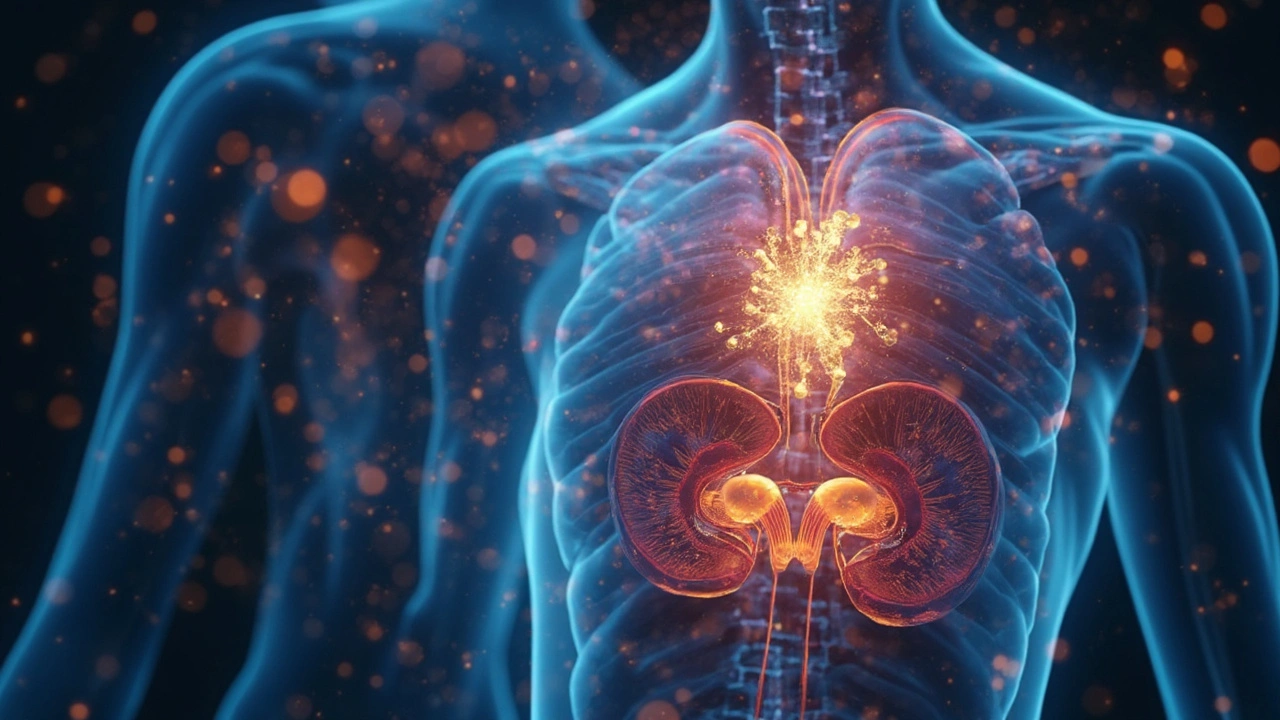
Discover how calcitriol, the active form of vitamin D, influences adrenal gland function, impacts hormone balance, and interacts with stress hormones like cortisol.
Ever notice how mood swings, weight changes, or low energy can show up out of nowhere? Most of the time it’s your hormones sending signals that something’s off. Getting them back on track doesn’t require a PhD – a few everyday habits and the right supplements can do a lot.
Hormones are chemical messengers that control everything from sleep to stress. When they’re out of sync, you might feel sluggish, gain unwanted pounds, or have trouble sleeping. Women often notice these shifts around periods, pregnancy, or menopause, while men may see changes in muscle tone and libido.
Keeping hormones balanced helps you:
All of this can be achieved with a mix of diet, lifestyle tweaks, and, when needed, safe medication options.
1. Eat hormone‑friendly foods. Aim for a plate rich in protein, healthy fats, and fiber. Foods like salmon, eggs, avocado, and leafy greens provide the building blocks for hormone production and help keep blood sugar steady.
2. Get enough sleep. Less than 7 hours can raise cortisol, the stress hormone, which throws off insulin and sex hormones. Set a bedtime routine, dim lights an hour before sleep, and keep the bedroom cool.
3. Move your body. Regular exercise, especially strength training, boosts testosterone and growth hormone, both key for muscle and metabolism. Even a brisk 30‑minute walk can lower cortisol.
4. Manage stress. Chronic stress is a major hormone disruptor. Try short breathing exercises, meditation, or a hobby you enjoy. Consistency beats intensity – a 5‑minute daily habit works better than a marathon session once a month.
5. Consider targeted supplements. Certain nutrients have strong research backing for hormone support:
If you’re dealing with a specific condition, our medication guides can help you choose safe options. For example, selective estrogen receptor modulators (SERMs) can help women with estrogen dominance, while low‑dose testosterone patches work for men with declining levels. Always check with a healthcare professional before starting any prescription.
6. Check your medications. Some drugs, like certain blood pressure meds, can interfere with hormone pathways. Our post on amlodipine for Raynaud’s explains how calcium channel blockers affect blood flow and hormones. Talk to your doctor if you suspect a medication is causing issues.
7. Stay hydrated. Dehydration raises cortisol and can mess with electrolyte balance, which is crucial for hormone signaling. Aim for at least 2 L of water a day, more if you exercise.
Balancing hormones is a marathon, not a sprint. Start with one or two changes, track how you feel, and build from there. The body will give you feedback – more energy, better mood, clearer skin – and you’ll know you’re on the right path.
Need deeper info? Browse our tag page for articles on specific drugs, supplements, and lifestyle hacks that target hormone health. From buying safe online pharmacies to understanding dosage, we’ve got practical guides that keep you in control.
Remember, you don’t have to figure it all out alone. Small, consistent steps add up, and a balanced hormone system can make a big difference in everyday life.

Discover how calcitriol, the active form of vitamin D, influences adrenal gland function, impacts hormone balance, and interacts with stress hormones like cortisol.